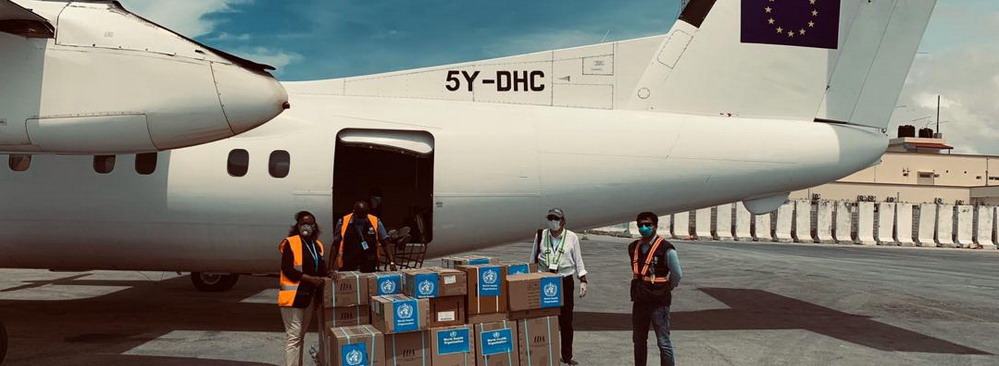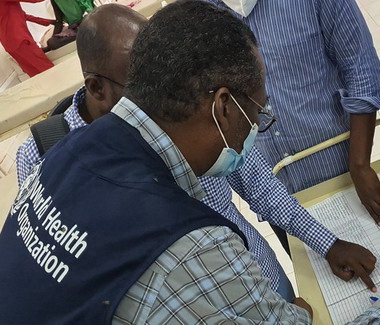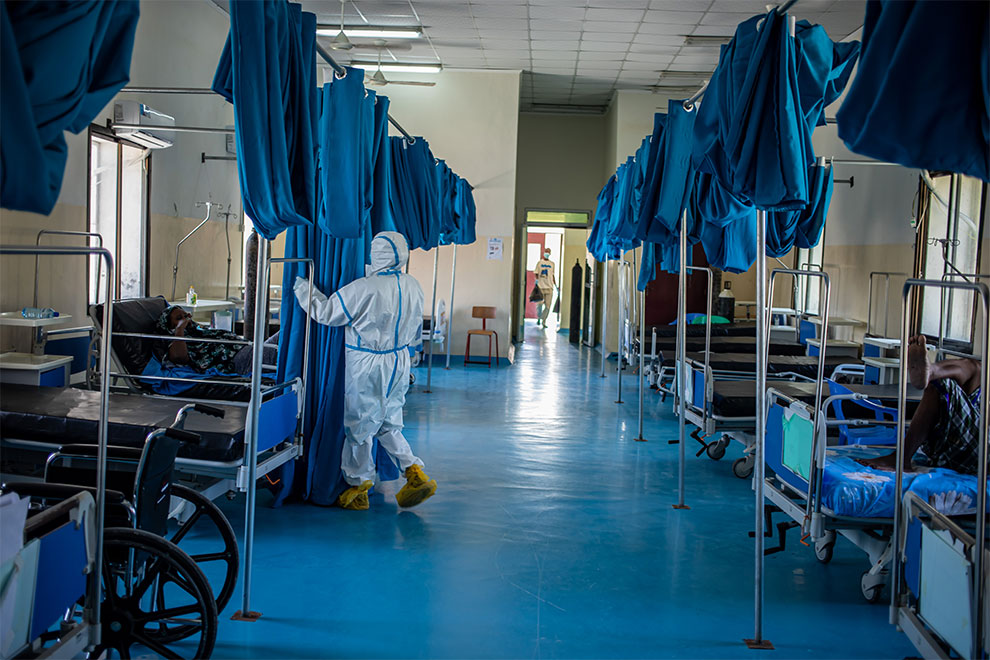
20 May 2020 – Somalia continues its fight against one of the most catastrophic outbreaks the country has ever witnessed. In spite of recurrent humanitarian emergencies, war and conflict, Somalia has successfully eradicated wild poliovirus and ended transmission of measles and cholera outbreaks in the recent past. However, the current outbreak of COVID-19 has exposed some of the gaping holes and weaknesses in its health system to fight and respond to an outbreak of this magnitude and scale where human-to-human transmission can go unabated and the potential for cases to double in a week if the health system is not able to rapidly trace, track, test and treat those infected with the virus who remain undiagnosed and undetected.
WHO has been supporting Somalia since the beginning of this outbreak to enhance its testing capacities. As the country lacks a proactive testing strategy for COVID-19, the number of cases has continued to rise since late March when local transmission was first identified. The country has not been able to trace back the sources of infection of these locally-transmitted cases. This resulted in a widespread cluster of cases and many of these people did not know that they were harbouring the infection until it was too late.
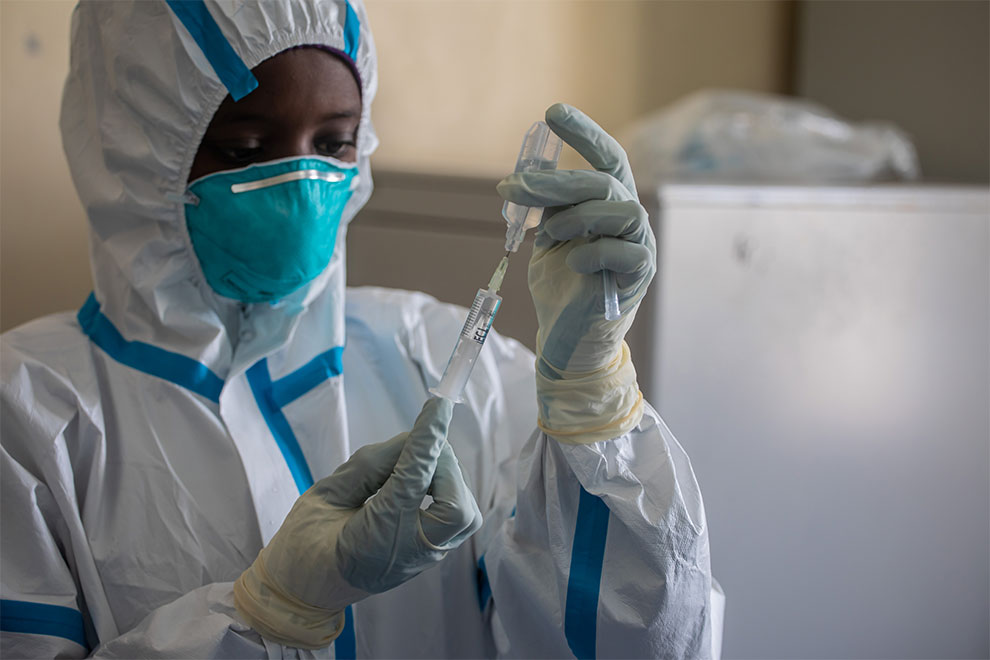
Owing to societal norms, cultural practice and high population density in major urban cities, such as in Mogadishu, self-isolation and quarantine have been a real challenge. This resulted in active transmission in households, which has infected a large number of elderly people living in those same households. Recent data suggest that although the elderly population (above 60 years) comprise of only 1–2% of the entire population in the country, they are disproportionately affected bearing over 12% of the burden of infection from COVID-19.
Recently, the majority of deaths that have occurred in De-Martino hospital, the major hospital in the capital Mogadishu city for treating COVID-19 patients, are all elderly patients and people with chronic health conditions who have been infected at home by other family members. In the last 3 weeks of May, more deaths were reported (35/57: 61%) than compared with both March (4/57; 7%) and April (18/57; 31.5%) combined.
As of 19 May 2020, the country has reported 1502 cases, including 59 associated deaths. Among East African countries, Somalia has reported the highest death toll. The majority of deaths have occurred in the 60–70 year age group.
The De-Martino hospital is equipped with 20 intensive care units. WHO has trained the health care workers of this hospital on case management and infection control measures. WHO has recently donated a number of critical hospital and medical supplies to this hospital for patient care. WHO is also assisting the hospital to automate its patient registration system for COVID-19 so that better quality data and other key information on patient’s survival and deaths can be recorded and analysed in real time to aid data-driven decisions for operational response. A number of other agencies like the United Nations International Office of Migration (IOM), the United Nations Population Fund (UNFPA) and USAID have donated hospital supplies and personal protective equipment for health care workers in the hospital, a sign of solidarity from all agencies to support a country facing one of the worst outbreaks in its history. WHO is also supporting 13 other isolation centres across the country with medical supplies, training of health care workers and budget support for salaries.
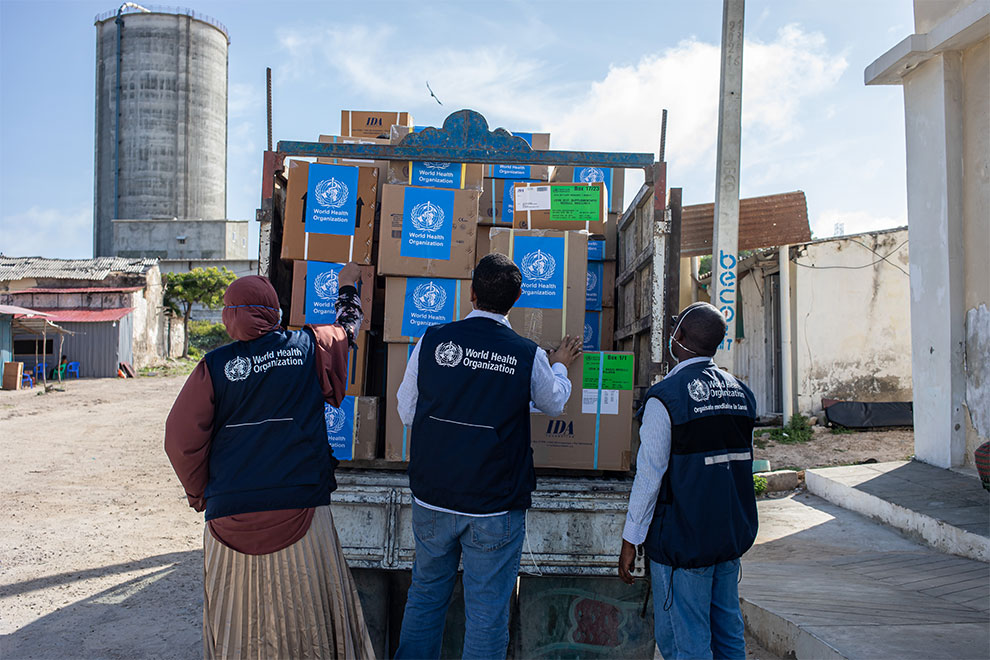
While Africa is potentially the next epicentre of this pandemic, it is critical to extinguish the outbreak in Somalia as the country’s weakened health system and infrastructure is no longer able to absorb the shock of this public health crisis. WHO continues to support the country with whatever resources the Organization has in the areas of improving coordination of operations response, surveillance and case detection, case management and risk communication, So far, only 26% of WHO’s urgent appeal of US$ 21.95 million for emergency response to COVID-19 in Somalia has been funded.





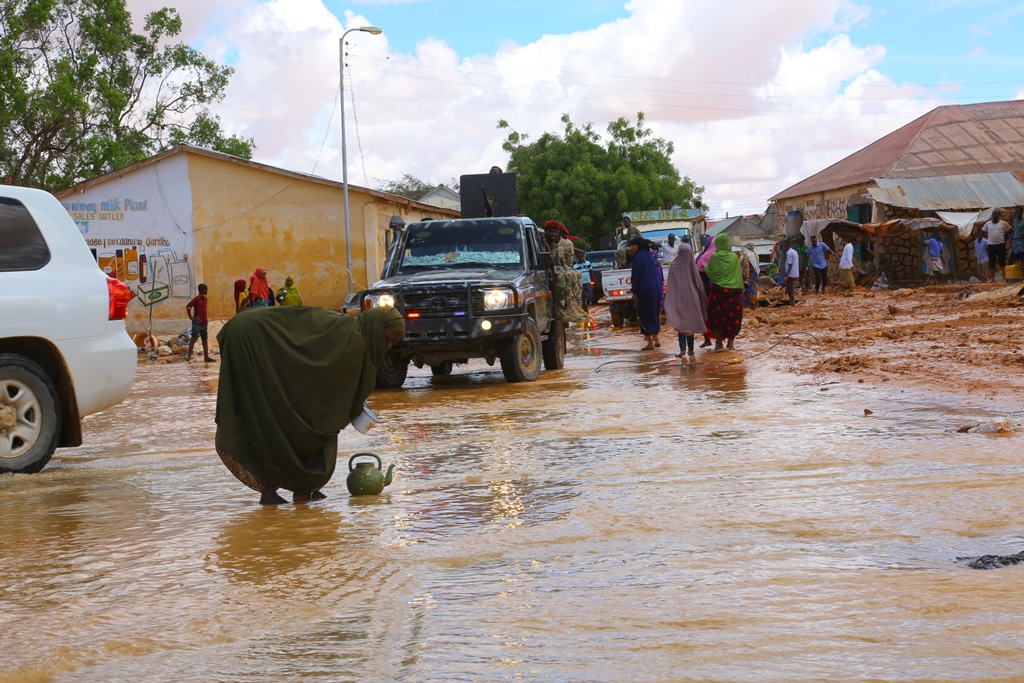
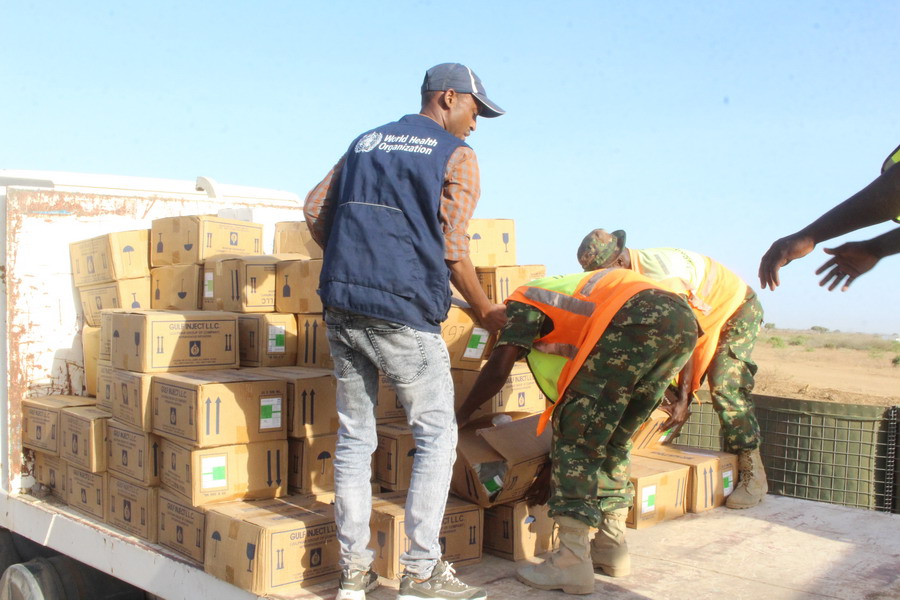
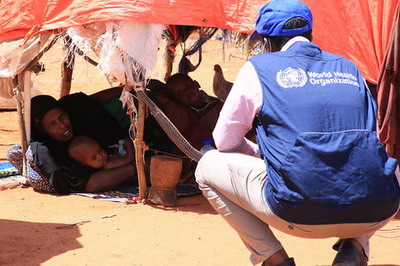
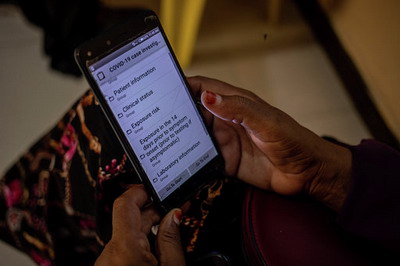 These community health care workers are being supervised by an additional 44 rapid response teams, formed at the district level. Once the community health care workers identify a suspected case through their house-to-house visits, information on the location of the suspected cases are automatically relayed to the rapid response team of the respective districts using open data kit – an open source software for collecting, managing and using data in resource-constrained environments. This data kit has been used in Somalia in the past for polio and cholera surveillance using mobile devices. The submission of the data to a server can be performed when internet connectivity is available. The rapid response teams, in turn, swiftly investigate the case and take appropriate action for testing, isolation and quarantine, as needed.
These community health care workers are being supervised by an additional 44 rapid response teams, formed at the district level. Once the community health care workers identify a suspected case through their house-to-house visits, information on the location of the suspected cases are automatically relayed to the rapid response team of the respective districts using open data kit – an open source software for collecting, managing and using data in resource-constrained environments. This data kit has been used in Somalia in the past for polio and cholera surveillance using mobile devices. The submission of the data to a server can be performed when internet connectivity is available. The rapid response teams, in turn, swiftly investigate the case and take appropriate action for testing, isolation and quarantine, as needed. These community health care workers and members of the team were trained by WHO staff before deployment. The training included how to wash hands using soap and water, how to look for suspected cases and how to conduct contact tracing systematically. Despite various restrictions and lockdown, the operation has continued in all parts of the country owing to the commitment and dedication of national staff of the WHO country office who have been working hand in hand with the state and local authorities since the beginning of the epidemic.
These community health care workers and members of the team were trained by WHO staff before deployment. The training included how to wash hands using soap and water, how to look for suspected cases and how to conduct contact tracing systematically. Despite various restrictions and lockdown, the operation has continued in all parts of the country owing to the commitment and dedication of national staff of the WHO country office who have been working hand in hand with the state and local authorities since the beginning of the epidemic. 